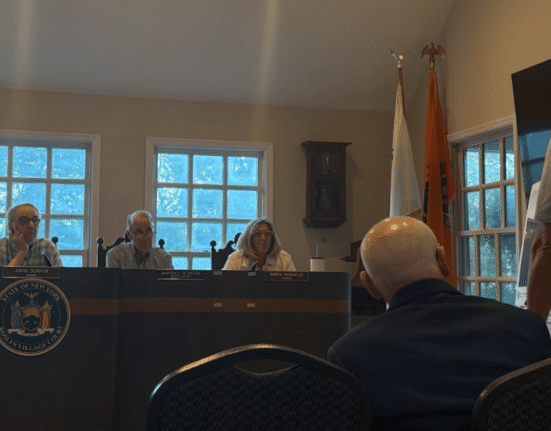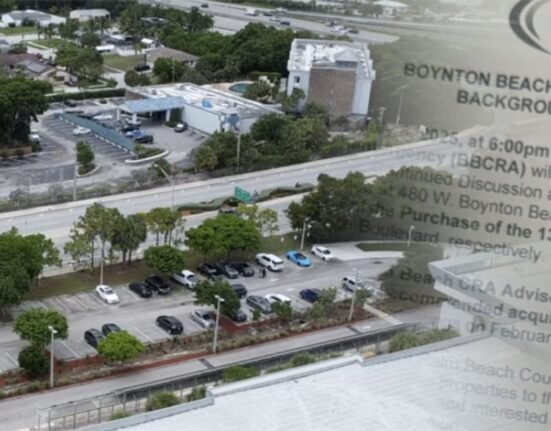(The Center Square) – Despite an attempted deferral, the Spokane City Council approved a law Monday that allows Code Enforcement to force vacant property owners to hire security at their own expense.
Council President Betsy Wilkerson initially voted alongside Councilmembers Michael Cathcart and Jonathan Bingle to delay the ordinance until Sept. 22, but the motion failed with a 3-3 tie.
Monday’s agenda claims that the proposal would centralize various sections of existing property regulations in the Spokane Municipal Code, but it also adds three new sections. Councilmember Zack Zappone and Councilmember Paul Dillon said they first came up with the idea about a year ago.
While most of the ordinance does, in fact, consolidate existing regulations, other sections expand Code Enforcement’s authority to create costly mandates for property owners. Zappone and Dillon cited outreach they had done with property managers, but Bingle and Cathcart had doubts.
“At the end of the day, what we’re hearing is fear from property managers who don’t take care of their properties,” Zappone said. “This is for those buildings and properties that are nuisances.”
An existing section of the code already addresses nuisance properties; however, this ordinance includes provisions that focus specifically on vacant buildings and properties. It requires owners to keep up the property, including removing personal items discarded by unauthorized persons.
The new section requires the owners or property managers to secure all doors, windows, gates, and other entrances. If they use lumber to board up those entrances, the paint must match and/or coordinate.
Code compliance officers must provide owners with at least ten days’ notice before taking any action to abate the property. The city would then charge the property, lienable under Section 17F.070.500.
The sticking point for most people was the new authority for Code Enforcement to mandate that vacant property owners hire security or implement other measures to deter unauthorized entry.
“The ordinance provides no objective standards to trigger such requirements,” Brad Barnett, president of the Spokane Business Association, testified. “Just the language [that] appears to be abandoned or declined that opens the door for increased enforcement and unpredictable costs.”
He said owners are already struggling with the cost of insufficient public enforcement, as those experiencing homelessness frequent vacant areas. According to the city website, Spokane has 3,500 acres of vacant land, 2,200 acres of partially used land and 900 acres of underutilized land.
Code Enforcement could also require owners to install additional security lighting, increase their inspection frequency, disconnect utilities, or take any other measure that staff deems necessary.
When motioning to defer earlier in the day, Bingle said he had a lot of people in the commercial property space reach out with concerns. Zappone, Dillon and others on the council majority say they conducted outreach and answered concerns ahead of time, but Bingle and Cathcart cited the need for more input.
“If we’re going to mandate something on the public, certainly it should also fall upon the city itself, and I don’t see that happening right now,” Cathcart said.
Zappone said Monday that he met with property owners over a year ago “and went back to the drawing board and talked about it.” He thinks this addresses some of their concerns but not all.
Last Thursday, he told The Center Square that his outreach included meeting with the Spokane Building Owners and Managers Association last year to discuss “similar topics,” but not this specific version.
Zappone also said he had met with Chud Wendle, executive director of The Hutton Settlement, days before, although Wendle told The Center Square that he had initiated that meeting, not Zappone.
“If this has been worked on for a year, a year, then I don’t understand why we’re getting a letter from BOMA just last week,” Cathcart said. “I just don’t understand how we ignore that many stakeholders over the course of a year … I only heard about this ordinance a few weeks back.”
Dillon told The Center Square last Thursday that he did his own outreach, which included a ride with Wendle earlier that day; on Monday, he cited meeting with “various stakeholders” as well.
Still, despite Zappone’s meeting with BOMA Spokane last year, the association sent a three-page letter on Friday, citing several concerns. It asked the city to table the idea so stakeholders could come up with a solution together, but the council rejected Bingle’s idea of forming a workgroup on Monday.
While Wilkerson initially voted to defer the ordinance, she later switched sides, passing Dillon and Zappone’s proposal 4-2 after Code Enforcement warned a deferral could delay cleanup efforts.
“Our concern is not just the cost of compliance,” Barnett said, “but the chilling signal that this sends to current and prospective investors in Spokane. If every vacant parcel becomes a potential liability, we risk driving away capital investment when our downtown corridor needs it the most.”







